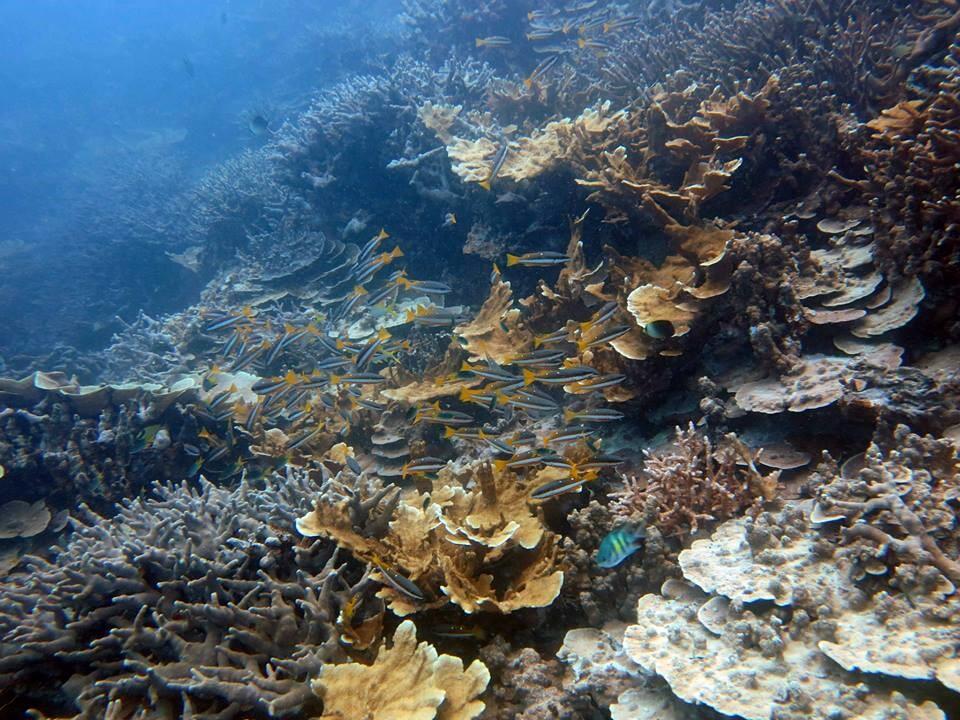A study group comprising Professor Haruko Kurihara and colleagues at the Ryukyu University School of Science investigated Nikko Bay, located in the southern part of Koror Island, in the South Pacific republic of Palau. They found an extremely unique marine environment that, in its natural state, has high water temperature and high CO2 levels (low pH). Scientists now project that seawater temperatures will increase, and seawater pH will decrease (acidify) in coral reef waters in the future, due to climate change driven CO2 increases. To predict future effects on coral reef ecosystems, research groups have previously evaluated the effects of experimentally rearing various species of coral and other organisms under high water temperature and high CO2 (low pH) environments and showed that coral growth and survival rates are reduced.
In Nikko Bay, the seawater temperature is 1-2 °C higher than that outside the bay, and the pH is maintained at approximately 0.3-0.4. A detailed examination revealed that the special environments in the bay were created by the effects of the metabolism of the inhabitant organisms, such as the respiration and calcification of the many corals in the bay, and by the heating of the seawater in the bay by the sun for an extended period (approximately 2 months), owing to the complex topography of the bay itself. Beyond this, when the composition of coral species inside and outside the bay was examined, the diversity of coral in the bay was more than that outside the bay. However, almost no Acropora species, commonly found in coral reef areas, were observed in the bay. Furthermore, exchange transplantation experiments were conducted inside and outside the bay using a coral species (Porites cylindrica) that was commonly found in the area. As a result, it was clarified that the coral in the bay is more resistant to high water temperature and high CO2 environments than the coral outside the bay. Professor Kurihara said, "In the future, we will determine why so many corals can live in a healthy state in this bay, how corals in this location have special adaptations, and the mechanisms, if any, by which the corals have acquired these adaptations." "We also wish to gain insights into the conservation of coral reef ecosystems in the context of ongoing climate change."

Credit: Ryukku University
This article has been translated by JST with permission from The Science News Ltd.(https://sci-news.co.jp/). Unauthorized reproduction of the article and photographs is prohibited.




